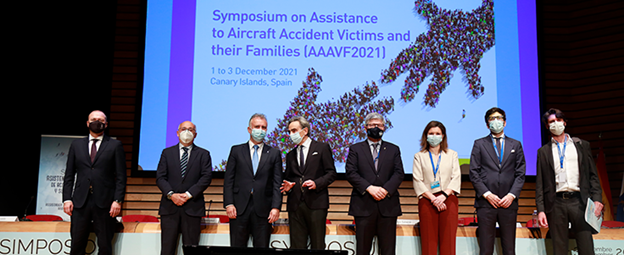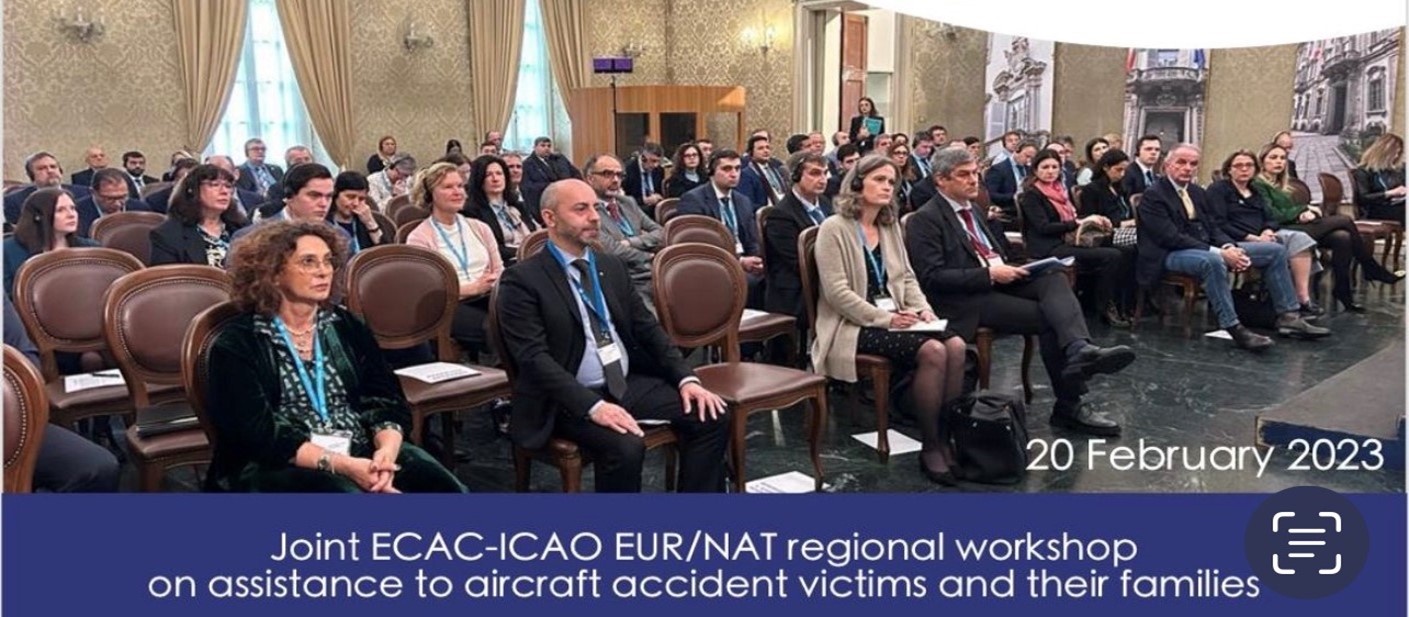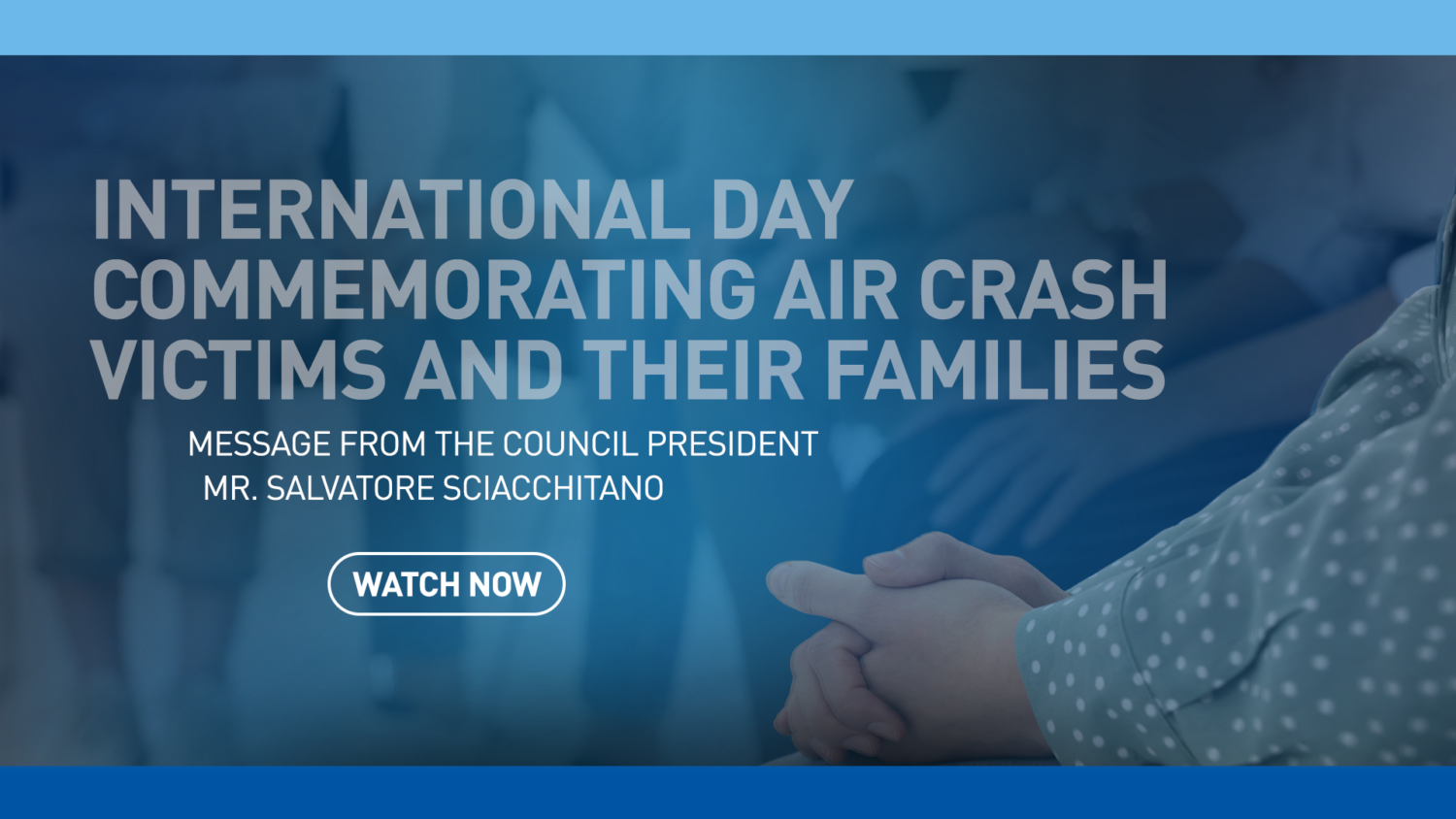Safety is a top priority for ICAO and the global air transport network, and we have seen remarkable advancements throughout the sector. Our 2022 Safety Report presented a detailed analysis of global civil aviation safety performance for 2021 operations, revealing a decrease in global accident rates. While this outcome reaffirms air transport as the safest mode of transport, aircraft accidents – however few – remain a sad reminder of global aviation’s responsibility to the travelling public to do more. They also underscore the critical importance of the commitment ICAO and its193 Member States share towards their agreed global safety target of zero fatalities by 2030.
ICAO first issued guidance on family assistance in 2001, and in 2013, we published the ICAO Policy on Assistance to Aircraft Accident Victims and their Families and an accompanying manual. The topic was also formally acknowledged by States at consecutive ICAO Assemblies, in 2013 and 2016, and considered by a special session of the 13th ICAO Air Navigation Conference in 2018.

In October 2021, Ministers participating at ICAO’s High-level Conference on COVID-19 renewed calls to States and airlines to prioritize action on victim assistance measures, and in December that year, ICAO convened its first-ever international Symposium on Assistance to Aircraft Accident Victims and their Families, providing an important platform to enhance global cooperation towards their care and treatment.
“Respect for victims of civil aviation accidents and the mental, physical, and spiritual well-being of their families is of paramount importance to ICAO, and we work diligently to ensure that these needs are considered and accommodated by States,” ICAO Council President, Mr. Salvatore Sciacchitano, said in his welcome address to symposium participants.
Reinforcing these views, ICAO Secretary General, Mr. Juan Carlos Salazar, in his opening remarks at the event, noted that “aviation safety is an incredible team effort, but this same cooperation must also be directed toward ensuring the rights of accident victims and their families in the aftermath of these tragic events.”
The three-day symposium provided an overview of the regulatory framework related to Assistance to Aircraft Accident Victims and their Families, consistent with provisions in Annex 9 — Facilitation to the Convention on International Civil Aviation and Annex 13 — Aircraft Accident and Incident Investigation.
Participants shared experiences and best practices in the communication of sensitive information on aircraft accidents, the management of compensation by insurance companies, and recommended regional workshops focused on related matters. They also called attention to Resolution A38-1, adopted at the 38th Session of the ICAO Assembly (A38), recognizing the need to provide assistance to victims and their families, and which urged States to “establish legislation, regulations and policies to support victims of civil aviation accidents and their family members.”
One of the most significant outcomes from the efforts to ensure care for accident victims and families is realized, occurred when ICAO’s Council, in support of a proposal by the Air Crash Victims’ Families’ Federation International (ACVFFI), approved the recognition of February 20th, as the International Day Commemorating Air Crash Victims and Their Families.
In his statement released on 20 February 2023, the second anniversary of the international day, Salvatore Sciacchitano, the President of the ICAO Council, emphasized the significance of this observance. “Mindful of the importance of public and private stakeholders assuring compassionate and effective assistance to aircraft accident victims and their loved ones, the ICAO Council has recently formalized an obligation under the Chicago Convention for countries to establish effective legislation, regulations, and policies in this area.” He noted that the ICAO secretariat has developed new training to assist national officials in designing and setting out appropriate family assistance legislation and plans. He further noted ICAO would continue to promote the widespread ratification and implementation of the Montreal Convention, which provides for fairer compensation and greater protection for victims.
In recognition of the anniversary, ICAO’s European and North Atlantic (EUR/NAT) office and the European Civil Aviation Conference (ECAC) organized a joint regional workshop on assistance to aircraft accident victims and their families. The event, held in Milan, Italy, enhanced the capacity of participating States to establish and implement effective mechanisms for the oversight of air operators’ and aerodrome operators’ family assistance plans, and for the adoption of legislation, guidance, and practices developed by other States.
“We have a perfect opportunity to share information and experience among States, in particular regarding the development and oversight of air operators’ and aerodrome operators’ family assistance plans,” remarked ICAO’s EUR-NAT Regional Director, Mr. Nicolas Rallo, who recalled that the workshop was in line with the outcomes of the Symposium on Assistance to Aircraft Accident Victims and their Families.
ICAO’s cooperation with States and industry stakeholders culminated in a global regulatory framework for addressing the needs of aircraft accident victims and their families.
“With the help of the insights and appeals of the ACVFFI’s committed representatives, the ICAO Council has now helped to assure continuous advocacy and attention for these important global priorities,” Mr. Sciacchitano affirmed
Mr. Sciacchitano delivered a video message on the International Day Commemorating Air Crash Victims and their Families. His full message can be found on ICAO TV through the link below.
About the author
Raymond Bayor is a communications consultant in the Facilitation Section of ICAO’s Air Transport Bureau. He returned to ICAO after having served as Associate Communications Officer in the Office of the Secretary General, and as communications specialist at the Ghana Civil Aviation Authority, the United States Agency for International Development, and the Office of the President of the Republic of Ghana.



